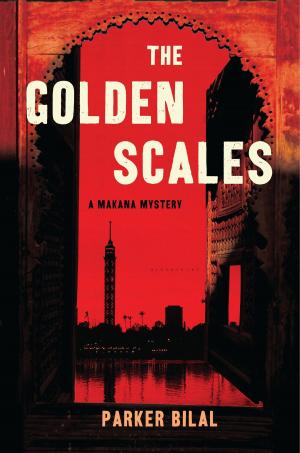| Author: | Frank Frankfort Moore, John Jellicoe | ISBN: | 1230000277912 |
| Publisher: | London: HUTCHINSON & CO | Publication: | November 2, 2014 |
| Imprint: | Language: | English |
| Author: | Frank Frankfort Moore, John Jellicoe |
| ISBN: | 1230000277912 |
| Publisher: | London: HUTCHINSON & CO |
| Publication: | November 2, 2014 |
| Imprint: | |
| Language: | English |
Example in this ebook
CHAPTER I
“This will never do, Betsy,” said Mr. Linley, shaking his head. “Sir Joshua calls you Saint Cecilia, but ’twere a misnomer if you do not sing the phrase better than you have just sung it. ‘She drew an angel down’: let that be in your mind, my dear. There is no celestial being that would move a pinion to help a maiden who implored its aid in so half-hearted a way. Let us try again. One, two, three——”
“‘Angels, ever bright and fair,’”
sang Miss Linley.
Her father sprang from the harpsichord.
“Gracious powers, madam! the angels are not in the next room—they are not even in Pierrepont Street, take my word for it; they are in heaven, and heaven, let me tell you, is a very long way from Bath!” he cried. “Give forth the ‘Angels’ as if you meant to storm the ears of heaven with your cry. Think of it, girl—think that you are lost, eternally lost, unless you can obtain help that is not of earth. Stun their ears, madam, with the suddenness of your imploration, and let the voice come from your heart. Betsy, that smile is not in the music. If Maestro Handel had meant a smile to illuminate the part, take my word for it he would have signified it by a bar of demi-semi-quavers, followed by semi-quavers and quavers. Good heavens, madam! do you hope to improve upon Handel?”
“Ah, father, do not ask too much of me to-night; I am tired—anxious. Why, only last week a highwayman——”
Miss Linley glanced, eagerly listening, toward the window, as if she fully expected to see the mask of a highwayman peering between the blinds.
“Betsy, I am ashamed of you!” said her father. “What stuff is this? Is there any highwayman fool enough to collect fiddles? Do you fancy that a boy with a fiddle tucked under his arm is in any peril of a bullet?”
“But they may affright the child.”
“Child? Child? Who is the child? What! Do you think that because you have not seen your brother since he was fourteen, the four years that have passed can have made no impression on him?”
“I suppose he will have grown.”
“You may be sure that he will be able to defend himself without drawing either his sword or his fiddle. To your singing, Betsy. Go back to the recitative.”
“It would be a terrible thing to find that he had outgrown his affection for us. I have heard that in Italy——”
“Still harping on my daughter’s brother! Come, Miss Linnet, you shall have your chance. You shall fancy that your prayer is uttered on behalf of your brother.
‘Angels, ever bright and fair,
Take, oh, take him to your care.’
Now shall the angels hear for certain. Come, child; one, two——”
“‘Angels——’”
sang Miss Linley.
“Brava!” cried her father sotto voce, as the sound thrilled through the room and there was a suggestion of an answering vibration from the voice of the harpsichord.
“‘Angels, ever bright and fair,
Take, oh, take me——’”
The harpsichord jingled alone. The girl’s voice failed. She threw herself into a chair, and, covering her face with her hands, burst into a passion of sobbing.
“Oh, if he does not arrive after all—if some accident has happened—if—if——”
The apprehensions which she was too much overcome to name were emphasised in the glance that she cast at her father. Her eyes, the most marvellous wells of deep tenderness that ever woman possessed, at all times suggested a certain pathetic emotion of fear, causing every man who looked into their depths to seek to be her protector from the danger they seemed to foresee; but at this moment they appeared to look straight into the face of disaster.
To be continue in this ebook...............................................................................................................
Example in this ebook
CHAPTER I
“This will never do, Betsy,” said Mr. Linley, shaking his head. “Sir Joshua calls you Saint Cecilia, but ’twere a misnomer if you do not sing the phrase better than you have just sung it. ‘She drew an angel down’: let that be in your mind, my dear. There is no celestial being that would move a pinion to help a maiden who implored its aid in so half-hearted a way. Let us try again. One, two, three——”
“‘Angels, ever bright and fair,’”
sang Miss Linley.
Her father sprang from the harpsichord.
“Gracious powers, madam! the angels are not in the next room—they are not even in Pierrepont Street, take my word for it; they are in heaven, and heaven, let me tell you, is a very long way from Bath!” he cried. “Give forth the ‘Angels’ as if you meant to storm the ears of heaven with your cry. Think of it, girl—think that you are lost, eternally lost, unless you can obtain help that is not of earth. Stun their ears, madam, with the suddenness of your imploration, and let the voice come from your heart. Betsy, that smile is not in the music. If Maestro Handel had meant a smile to illuminate the part, take my word for it he would have signified it by a bar of demi-semi-quavers, followed by semi-quavers and quavers. Good heavens, madam! do you hope to improve upon Handel?”
“Ah, father, do not ask too much of me to-night; I am tired—anxious. Why, only last week a highwayman——”
Miss Linley glanced, eagerly listening, toward the window, as if she fully expected to see the mask of a highwayman peering between the blinds.
“Betsy, I am ashamed of you!” said her father. “What stuff is this? Is there any highwayman fool enough to collect fiddles? Do you fancy that a boy with a fiddle tucked under his arm is in any peril of a bullet?”
“But they may affright the child.”
“Child? Child? Who is the child? What! Do you think that because you have not seen your brother since he was fourteen, the four years that have passed can have made no impression on him?”
“I suppose he will have grown.”
“You may be sure that he will be able to defend himself without drawing either his sword or his fiddle. To your singing, Betsy. Go back to the recitative.”
“It would be a terrible thing to find that he had outgrown his affection for us. I have heard that in Italy——”
“Still harping on my daughter’s brother! Come, Miss Linnet, you shall have your chance. You shall fancy that your prayer is uttered on behalf of your brother.
‘Angels, ever bright and fair,
Take, oh, take him to your care.’
Now shall the angels hear for certain. Come, child; one, two——”
“‘Angels——’”
sang Miss Linley.
“Brava!” cried her father sotto voce, as the sound thrilled through the room and there was a suggestion of an answering vibration from the voice of the harpsichord.
“‘Angels, ever bright and fair,
Take, oh, take me——’”
The harpsichord jingled alone. The girl’s voice failed. She threw herself into a chair, and, covering her face with her hands, burst into a passion of sobbing.
“Oh, if he does not arrive after all—if some accident has happened—if—if——”
The apprehensions which she was too much overcome to name were emphasised in the glance that she cast at her father. Her eyes, the most marvellous wells of deep tenderness that ever woman possessed, at all times suggested a certain pathetic emotion of fear, causing every man who looked into their depths to seek to be her protector from the danger they seemed to foresee; but at this moment they appeared to look straight into the face of disaster.
To be continue in this ebook...............................................................................................................















